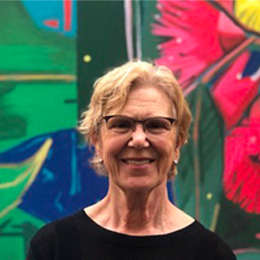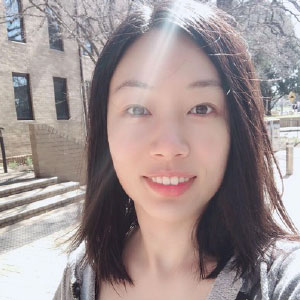Global Childhoods Research Hub
As the world continues to change through technologies, natural and human-induced events or disasters and mobilities, the Global Childhoods Research Hub responds to the need for new structures and theorising of childhood, children’s capabilities and alternative research and policy narratives to create new possibilities.
A message from the Director
Professor Nicola Yelland shares the purpose and work happening in the Global Childhoods Hub
-
Director
Professor Nicola Yelland
-
Associate Directors
Professor Kylie Smith
Associate Professor Jeanne Marie Iorio
-
Seminar Coordinator
Dr Sonja Arndt
Latest News
The focus of Global Childhoods Research Hub is on the lives and experiences of children from birth to 24 years of age across the world.

Global Childhoods at MGSE will position children’s lives, worldviews and futures at its core. It will connect childhood research and teaching in a clear and cohesive manner, bringing projects from leading academics, early career-researchers, research fellows and doctoral students together around interdisciplinary themes and research problems; including those related to equity, social justice and disadvantage, climate change and sustainability, contemporary learning ecologies, multimodal lives, education systems and children as activists.
This unique research hub contributes to and strengthen the internationalisation of research activity in MGSE and across the University. Researchers in the hub will collaborate with new and well-established global partners that have similar aims and scope and act as a conduit to stimulate new cutting-edge research projects. The hub is located at MGSE which has a global reputation for excellence in educational research and policy. The hub connects people and research problems to facilitate, mentor and activate dialogue and debate, and creates interdisciplinary partners to set innovative and forward-thinking research projects and publications.
Childhoods are not equal within nations and globally. The hub disrupts silo discourses that break up childhoods into age categories to understand the interconnections and disconnections of multiple childhood experiences in their contexts. As the world continues to change through technologies, natural and man-made events or disasters and mobilities the hub responds to the need for new structures and theorising of childhood, children’s capabilities and alternative research and policy narratives to create new possibilities.
Meet the people leading and collaborating in the Global Childhoods Hub.
A/Prof Jane Dyson
A/Prof Jeanne Marie Iorio
Prof John Tobin
Dr Matt Harrison

Global childhoods in the Asian Century: Connecting policy, educational experiences and everyday lifeworlds of children in Australia, Hong Kong and Singapore
Lead: Nicola Yelland, Australian Research Council Project (DP180100325)
Conceptualising global childhoods enables and encourages a worldview of childhoods that is not universal and regards children as capable and agentic. Researching global childhoods recognises that children come to learning ecologies with a variety of funds of knowledge that can be built on by teachers in dynamic ways to encourage deep learning, engagement with ideas and multimodal forms of making meaning.
With funding from the Australian Research Council (ARC) the project Global childhoods: Lifeworlds and educational success in Australia and Asia aims were to investigate the ways in which children’s orientation to educational success is shaped, and how this relates to Australian and Asian policy cultures. It adopted a mixed methods approach that incorporated a large-scale survey of students of 627 Year 4 students in three global cities (Melbourne, Singapore and Hong Kong) and included an ethnographic study of student lifeworlds in each location with data collected in both schools, homes and community. The research sought to understand the lifeworlds in the context of a holistic view of their education which occurs in a variety of locations; school, homes and in their communities. It sought to better understand how children’s different and multiple sociocultural networks are connected by their lives inside and outside of schools.

Learning with Place
Co-leads: Dr Catherine Hamm and Associate Professor Jeanne Marie Iorio
Learning with Place: Learning with Place is a research project focused on acting toward hopeful climate change. We know there is a lack of connection between humans and the environment. We Learn with Place to build deep relationships with local places, trees, bushes, animals, insects, and waterways. Central to this is understanding First Nations Worldviews and the stories and histories of the local Place. These relationships inform how we make decisions that consider the environment and all with whom we share the planet.
Key Publications
- Iorio, J.M., Hamm, C., Cooper, J., Parnell, W., Smith, K.., Crowcroft, P., Yelland, N, Molloy-Murphy, A.,(2023) Learning with Place as a catalyst for action. Pedagogy, Culture & Society.
- Iorio, J.M. & Hamm, C. (2021). Learning with Place. The SAGE Encyclopedia of Global Childhoods. Thousand Oaks, CA: Sage.
- Hamm, C. & Iorio, J.M. (2019) Place in Early Childhood Teacher Education. In: Peters M. (eds) Encyclopedia of Teachers Education. Springer, Singapore.
- Iorio, J.M, Coustley, A., & Grayland. (2018). Practicing Pedagogical Documentation: Teachers making more-than-human relationships and sense of place visible. In N Yelland and D Bentley (Eds.) Not lost in translation: Connecting reconceptualist early childhood ideas with practice. New York: Routledge.

The secret underground
Lead: Dr Angela Molloy-Murphy
The secret underground: A glow world experience was an interactive installation inviting children and their companions to reconsider the often unseen world of the more-than-human. This installation was created based on the premise that, although human activity visibly slows down in North America in the winter, the underground world is vibrant and bustling with action. In the U.S. Pacific Northwest, this mysterious subterranean landscape includes burrowing animals such as squirrels, moles, and rodents, but also insects and archaea, bacteria, microbes, algae, fungi and more...legacies, memories, spirits, and processes such as crystallisation, decomposition, and decay.
For the 2022 Portland Winter Light festival, creative partners Angela Molloy Murphy, Katie Shook of Mudland, Michelle Loberg, Reese Bowes, and Friends of the Secret Underground, a collective of children ages 4-16, designed a multimodal exhibit using video, light, and sound to simulate an underground world. This immersive installation was part of an academic research project with the University of Melbourne engaging posthumanism and the new materialisms in a participatory, arts-based inquiry regarding children’s relations with place. In this moment of urgent planetary and humanitarian crises, children have much to offer. It is in this spirit that the collective Friends of the Secret Underground will gather again for collaborative, place based, research and writing.
Ian Hamm and Nerita Waight
1 June 2022
Nerita Waight and Ian Hamm started our seminar series off to present ways in which they work to elevate social justice and equitable representations of Aboriginal people on boards and other high-level governance, through strategic action, advocacy and mentoring.
Eugenia Arvanitis
27 July 2022
Associate Professor Eugenia Arvanitis presented current research data on refugees’ narratives in Greece and engaged in dialogue with her Australian colleagues so to establish a common understanding on relevant issues.
Mariana Souto-Manning
1 December 2022
Professor Mariana Souto-Manning explores the commitment to pursue justice and foster belonging in early childhood teaching and teacher education as a moral and ethical imperative for our profession.
Marek Tesar
8 March 2023
Professor Marek Tesar presented a theorisation of global childhoods, addressing philosophies, theories, pedagogies and methodologies that shape this field. He focused on global and local discourses and charted current challenges and opportunities of global childhoods scholarship and practices.
Kate Coleman and Sarah Healy
19th October 2023
Young People in Anthropogenic Times: Expanding Definitions of Childhoods, Pluricultural Climate Stories and Knowledge Mobilisation
This seminar introduces SWISP Lab, a research lab directed by Kate Coleman and Sarah Healy that is located within the Global Childhoods Research Hub, and its global climate project called HAK.io. The project seeks to collaboratively practice with youth – as defined by the UN – to produce a pluricultural approach to climate education. We do this by hacking the Anthropocene beginning with climate stories, often not just of individuals but entire communities and families, which provide insight into the complex relations between humans, technology and the land.
Sarah Pink
8th April 2023
Design Ethnographic Filmmaking
In this talk, Sarah discusses the practice of design ethnographic filmmaking, through the examples of her recent documentary film projects.
Sarah positions design ethnographic filmmaking as part of a new futures focused agenda for the social sciences, and her talk also advocates for a shift in the way in which we engage in the futures space, in relation to other academic disciplines and non-academic stakeholders. Such a movement, Sarah will argue, is necessary for the social sciences to be able to participate in shaping the agendas and pathways towards possible futures that are so much needed.
International Advisory Board
Name | Institution | Country |
| Dr Lorna Arnott | Strathclyde University | Glasgow Scotland |
| Associate Professor Anne Bourke | Memorial University of Newfoundland | Canada |
| Professor Deevia Bhana | University of Kwazulu-Natal | South Africa |
| Dr Cassie Brownell | Toronto University Ontario Institute for Studies in Education | Canada |
| Professor William Cope | University of Illinois Urbana – Champaign | USA |
| Dr. Su Corcoran | Manchester Metropolitan University | UK |
| Dr Nikki Fairchild | University of Portsmouth | UK |
| Prof Rosie Flewitt | Manchester Metropolitan University | UK |
| Professor Andrew Gibbons | The University of Auckland | NZ |
| Dr Annette Helman | The University of Gothenburg | Sweden |
| Professor Mary Kalantzis | University of Illinois Urbana – Champaign | USA |
| Professor Kristiina Kumpulainen | Simon Frazer University | Canada |
| Professor Li Hui | Education University of Hong Kong | PRC |
| Professor Jackie Marsh | The University of Sheffield | UK |
| Professor Emeritus, Peter Moss | University College, London | UK |
| Professor Will Parnell | Portland State University | USA |
| Professor John Potter | University College, Londaon | UK |
| Professor Michelle S. Perez | University of North Texas | USA |
| Professor Mathias Urban | Dublin City University | Ireland |
| Professor Mariana Souto-Manning | Erikson Institute of Early Childhood | USA |
| Professor Zhu Yan | University College London | UK |
| Professor Marek Tesar | The University of Auckland | NZ |
| Dr Jon Wargo | Boston College | USA |


